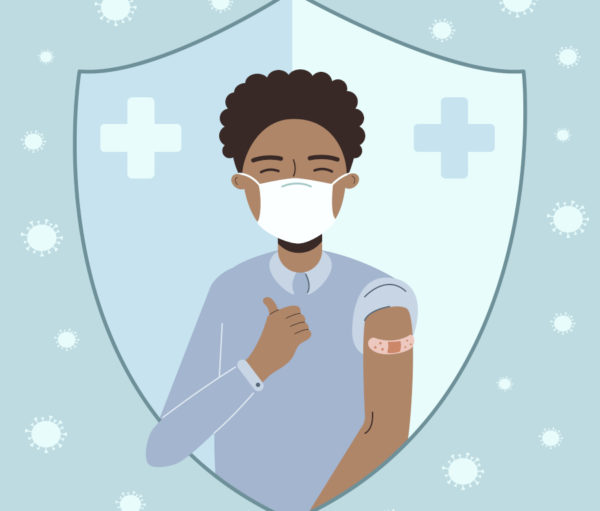Help People Say Yes to the COVID-19 Vaccine

Experts from the University of Michigan recently interviewed older adults about the COVID-19 vaccines. About 60% of the seniors they talked to said they would get the vaccine as soon as they could. Another 10% said they would get it—they just didn’t want to be first. Almost 15% said they would not get the vaccine, and the rest were undecided.
That is a somewhat higher number than is seen among younger adults—but still concerning, given that getting as many people as possible vaccinated is the best way of helping our nation and the whole world return to normal. The University of Michigan experts said it’s very important for health care providers to talk to patients about the vaccine. They report that that many people who refuse to be vaccinated say “I did my own research”—but that “research” turned out to be a video posted on YouTube by an unqualified person, or even something they saw on a conspiracy theory website.
Experts from the University of Georgia agree that misconceptions are an obstacle preventing many people from getting their shot. If you have a friend or family member who is eligible for their vaccine but is hesitant to get it, Prof. Glen Nowak offers tips for having a productive conversation on the topic:
If they’re concerned about side effects. The Centers for Disease Control and Prevention (CDC) has advised health care experts to be frank about side effects people might experience after they get their vaccine, especially the second dose. Assure your loved one that many people experience no side effects at all—and the most common effects, a sore arm and fatigue for a day or two, are nothing compared to what they would experience with COVID! “Even for those who only have mild illness, COVID can bring multiple days of feeling bad, along with much uncertainty and anxiety about which symptoms you will develop,” Nowak said. “With more severe illness, you could end up being hospitalized.” And as we’re observing the sad milestone of 500,000 deaths due to the disease, it’s obvious that the side effects of the vaccine pale in comparison to the risks from the disease.
If they’ve been told the vaccines were developed too quickly to be safe. “The COVID-19 vaccines were indeed developed and approved for use faster than any in modern history,” Prof. Nowak’s team confirms. “But the science behind the shots wasn’t new. No corners were cut.” This truly was an example of what science can do when well-funded! The government support allowed a number of companies to work on the vaccines at the same time, and the clinical trials were much larger, so they could be faster—taking months instead of years.
If they say they are going to wait and see. This is a common approach people take to any new vaccine, says Nowak. “It’s an understandable reaction. However, what you want to ask is what they are waiting to see!” Because the development of this vaccine was on such a large scale, we already know quite a bit about the safety and effectiveness of the vaccines.
The University of Michigan experts say there’s a hardcore group that believes and spreads misinformation about the vaccine—but most people fall more on the undecided center of the scale. It’s important to address individual misconceptions. For example, many people of color harbor suspicion of vaccines due to historic mistreatment during medical research. U-M’s Dr. Susan Woolford is working on ways to reassure this underserved population. “As a community engaged researcher and a Black person in America, when faced with the issue of COVID-19 and vaccination …. these decisions are being made with the background of bias and health disparities for decades,” Dr. Woolford says, adding, “People will care about what we know about vaccines when they know we actually care about them.”
The Michigan team also urges people who have been vaccinated to share their experiences! Post a selfie with your band-aid after you get your shot (but not a picture of your shot record—scammers might take advantage of that). There are plenty of people who trust you as a friend, as a family member, and as a leader. While older adults might not always be the trendsetters in our culture, in the case of our nation’s COVID vaccine effort, their place first in line definitely makes them “influencers”!
We can also remind people that they aren’t getting that shot just to protect themselves. Getting immunized helps protect the most vulnerable people among us, including not only seniors, but also the many other people of every age, even children, who could die or experience permanent disability.
“We all want to get back to what life was like before the pandemic, and the only way for everyone’s lives to get back there is to be protected against COVID-19 illness,” concludes Prof. Nowak. “And the best way to be protected in this COVID-19 illness is to get vaccinated.”
Source: IlluminAge with information from the University of Michigan and the University of Georgia
The information in this article is not intended to replace the advice of your health care provider. Talk to your doctor about getting the COVID-19 vaccine.


